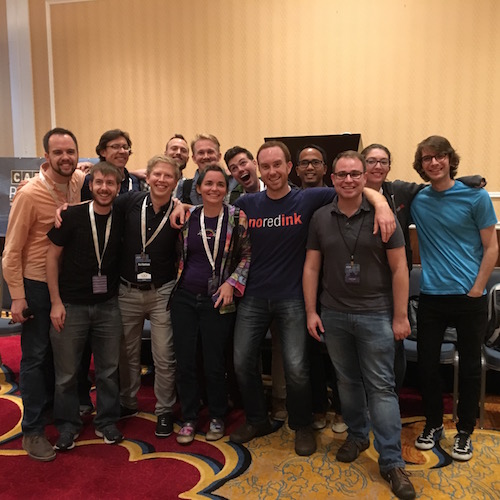Call For Proposals Opens April 10, 2017

The elm-conf call for proposals (CFP) period opens April 10, 2017. This is when you can submit a talk for inclusion in the conference. Submissions will be evaluated blindly by a small panel. Accepted speakers will get a ticket to the conference, lodging, and travel assistance.
If it’s your first time proposing a talk, don’t worry! We’ll provide a round of feedback for all talks submitted before the last week of the CFP period.
That said, here are some resources for writing good talk proposals:
And some tips from Sarah Mei, reproduced here:
My #1 conf talk description tip: no first-person sentences. “You will learn” instead of “I will teach.” “You will see” instead of “I will show.”
Show reviewers that you’re consciously putting yourself in the place of the audience, and asking yourself: what do they want to learn? When the talk description is about what the speaker will do, it’s usually a shitty talk because the speaker can’t detach from their own viewpoint. I don’t want talks where the speaker wants to show something; I want talks where the speaker wants to teach something.
The difference between show and teach is how much responsibility the speaker takes for helping the audience understand. “You will learn X” isn’t asserting an outcome–it’s helping the audience imagine what they could walk out knowing that they don’t know now. It connects to people in a more visceral way than “I will show X,” and invests them in your success as a speaker. Using “we” (“we will explore”) similarly signals reviewers that you’re thinking of the audience, and can feel more collaborative than “you.”
The three overarching goals of removing first person from a talk description:
- Help you, as the speaker, frame the talk around what the audience wants to learn instead of what you want to show.
- Signal folks reviewing the proposal that you’re already thinking about how their audience will get what they want from your talk.
- Connect with potential audience members & get them excited about what they’ll learn if they go to your talk.
This last one is most important for a multi-track conference, but can also help sell tickets even if the conf is a single track.
